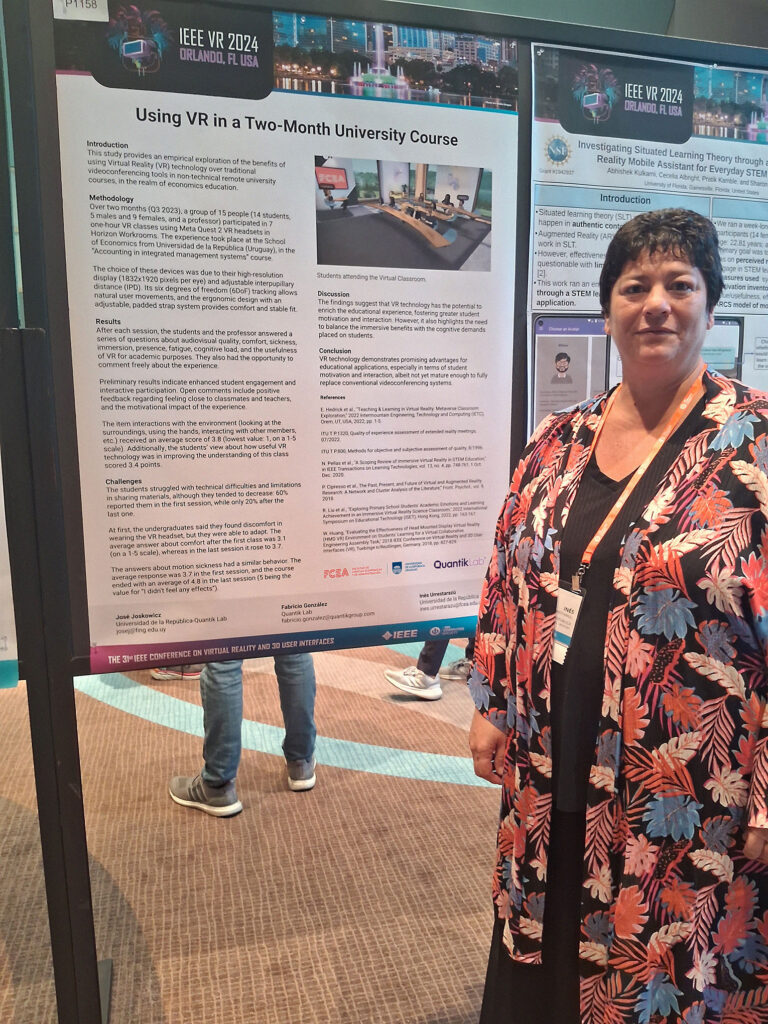For the third consecutive year, on the occasion of International Women's Day, Quantik is launching our #Pioneers campaign, a compilation of stories of women in technology who are breaking barriers in Latin America.
Women in STEM (Science, Technology, Engineering and Mathematics) in Latin America and the Caribbean defy stereotypes and contribute significantly to technological and scientific progress in the region. Although parity in the proportion of male and female researchers has been achieved in our region, with 45% of all researchers being women, high levels of horizontal and vertical segregation persist. Women continue to be underrepresented in the upper levels of professional careers and remain a minority in many STEM fields in most countries of the region.
Despite historical challenges and cultural barriers, more and more women are entering traditionally male-dominated fields, bringing with them a unique perspective and a diverse set of skills that enrich the STEM landscape. From creating innovative tech startups to cutting-edge research in academic labs, women in STEM are driving progress and leading the way to a more inclusive and equitable future in Latin America.
Pioneers aims to showcase the stories of some of the women who are making their mark through their work in STEM around the world. Meet the eight pioneers of this edition:
Jennifer Samaniego
Jennifer is a Computer Systems Engineer with a Master's degree in Data Science, originally from Ecuador, who has excelled in the field of immersive technologies for education. With more than five years of experience as an educational innovation analyst at the Universidad Técnica Particular de Loja (UTPL), she is also recognized as the founder and deputy director of the Immersive Learning Network RAIN Ecuador, as well as a member of the founding team of the Virtual Reality University Club of the UTPL.
Highlighting her achievements, Jennifer was selected to participate in the IDB Lab and Meta's Metaverse Community Challenge, cementing her position as a leading figure in the field of immersive educational technology. In addition, Globant recognized her as a global winner in the Inspiring Leader category in the Women that Build 2023 awards. Her commitment to innovation and the improvement of education through technology has made her a reference in her field, both nationally and internationally.
Carolina Matonte
Carolina Matonte Pereira is a Uruguayan Systems Analyst. Since October 2021, she serves as QE Leader at Abstracta Uruguay, leading key initiatives in software quality and quality assurance.
Within the educational field, Carolina plays a relevant role as head of the education area for ReconverTIte: Mujeres en Testing, a project developed by Abstracta with the aim of empowering women living in the interior of Uruguay through training in software testing and their retraining in the technology industry.
In addition to her work at Abstracta, Carolina is co-founder of TalentosRemotos.uy, a platform that promotes remote work and connects talent with online job opportunities. She is also a partner in the consulting firm ANRO, which offers ICT and management advice to companies in the interior of the country.
Carolina's commitment to inclusion and training reflects her vision of contributing to the growth and development of the technology sector in Uruguay.
Ivete Sanchez
Ivete Sánchez, a native of Mexico, is a leading figure in the field of technology and research. She currently serves as coordinator of Technological Services at the Mathematics Research Center and manager of the Artificial Intelligence Alliance of CONAHCYT Centers (National Council of Humanities, Sciences and Technologies).
Her interests focus on key areas such as image processing, machine learning, optimization, parallel computing, pattern recognition and numerical modeling. With a background in Computer Systems engineering and a Master's degree in Computer Science and Industrial Mathematics from the Mathematics Research Center, Ivete has more than 15 years of experience in software project development, mathematical computation and technology transfer.
Among other activities, she is an Ambassador for Women in Data Science (WiDS), an initiative of Stanford University to visualize what is being done in this area. She is co-founder of the Mexican Women in Data Science group and volunteer in the Women in Artificial Intelligence association in the Mexico chapter where she is Director of Operations.
Patricia Ordóñez
Patricia Ordóñez, a pioneer in computer science in Puerto Rico, is recognized as the first Latina to earn a PhD in Computer Science from the University of Maryland and the first woman to be promoted to associate professor at the University of Puerto Rico (UPR). Her research focuses on clinical informatics, assistive technology and computer science education research. She is noted for her work on projects such as Exploring Computing Education Pathways (ECEP) and her participation in initiatives that promote diversity in the field of computer science.
Patricia is co-founder of initiatives such as Computer Science for All and Women in Data Science. She is also a founder of the Symposium of Health Informatics in Latin America and the Caribbean (SHILAC). Her commitment to promoting diversity is reflected in her membership on the ACM-Women North America Committee and her prominent role in the 2021 Tapia Celebration of Diversity in Computing conference.
Her work in the academic and scientific community has made her a leading figure in the promotion of diversity and equality in the field of computer science. From her position at the UPR, Patricia continues to lead innovative projects and contribute to the advancement of computer science and inclusion in the region and beyond.
Abby Tejera
Abby Tejera, a young Uruguayan woman, stands out for her commitment to science outreach and the empowerment of young women in STEAM/ICT areas. As founder of Física Mente Posible, she leads a project to awaken scientific vocations and reduce the gender gap in STEAM.
From an early age, Abby has been a volunteer at Plan Ceibal and participated in the Jóvenes a Programar program, becoming a GeneXus analyst and a representative figure in the International Day of Women in IT. She worked at Globant and developed the Study Engine application to facilitate the search for academic opportunities.
Her academic excellence and social commitment earned her a full scholarship to Oberlin College, where she is a sophomore pursuing a double major in Physics with a concentration in Astrophysics and Computer Science. In addition, she has been active in community service and student leadership, working as an instructor and advisory leader.
Jocelyn Dunstan
She is a physicist specializing in public health, with a particular focus on using machine learning and natural language processing to solve key problems. Her research focuses on clinical text mining and patient prioritization. Through mathematical analysis of medical texts, it is possible to identify and classify patients in Chilean public hospitals, providing essential data for medical consultations, historical records and other relevant applications.
In addition to leading projects with industry, she is an academic at the Catholic University of Chile, with a dual affiliation between the Department of Computer Science and the Institute of Mathematical Computing. She holds a PhD in Applied Mathematics and Theoretical Physics from the University of Cambridge and is a researcher at the Center for Mathematical Modeling (CMM), the Millennium Institute for Fundamental Research in Data (IMFD) and the Institute for Intelligent Health Engineering (iHealth).
In 2022 she won the Adelina Gutiérrez Award, given by the Chilean Academy of Science for excellence in women researchers under 40 years of age, and in 2023 she was highlighted by 3M in its publication "25 Women in Science", for her work in science due to adversity.
Carolina Taborda
Carolina, as co-founder and CEO of STEAMED Latam, has led key initiatives to boost technological development and creativity in the region. In addition, her commitment to strategic innovation and entrepreneurship led her to serve as an advisor to the Executive Presidency of the National Learning Institute of Costa Rica, contributing to the promotion of a dynamic and sustainable entrepreneurial ecosystem.
Carolina also co-founded and directed the Costa Rica Foundation for Innovation. In the academic field, she serves as director and professor of the Innovation and Entrepreneurship specialty at Lead University, as well as coordinator and manager of the Research Center for Innovation at Veritas University, leading important research and technological development projects.
In addition, he has designed and implemented innovative methods of technology learning and innovation in the classroom, generating a lasting impact on technology education in the country.
As a consultant in innovation management, she has provided strategic advice to both the business and education sectors, contributing to the growth and sustainable development of Costa Rica. Currently, she is Cluster Manager of Cybersec Cluster, leading key initiatives in cybersecurity.
Carolina Bañales
Carolina, a telematics engineer from Uruguay, founded GlamST at the age of 24, an augmented reality company focused on the beauty industry. After eight years of success, the company was acquired by Ulta Beauty, a major U.S. cosmetics retailer.
Subsequently, Carolina used the funds to create Eyecue Insights, a company that applies artificial intelligence to marketing. She developed an innovative algorithm in Eyecue that classifies images according to the Fitzpatrick scale for skin tones, allowing her to collaborate with large beauty conglomerates to promote more diverse representation in their models and content.
Through her ventures, Carolina has demonstrated her ability to lead innovative and successful companies in the technology and beauty sector, with GlamST collaborating with leading global brands before being acquired by Ulta Beauty.
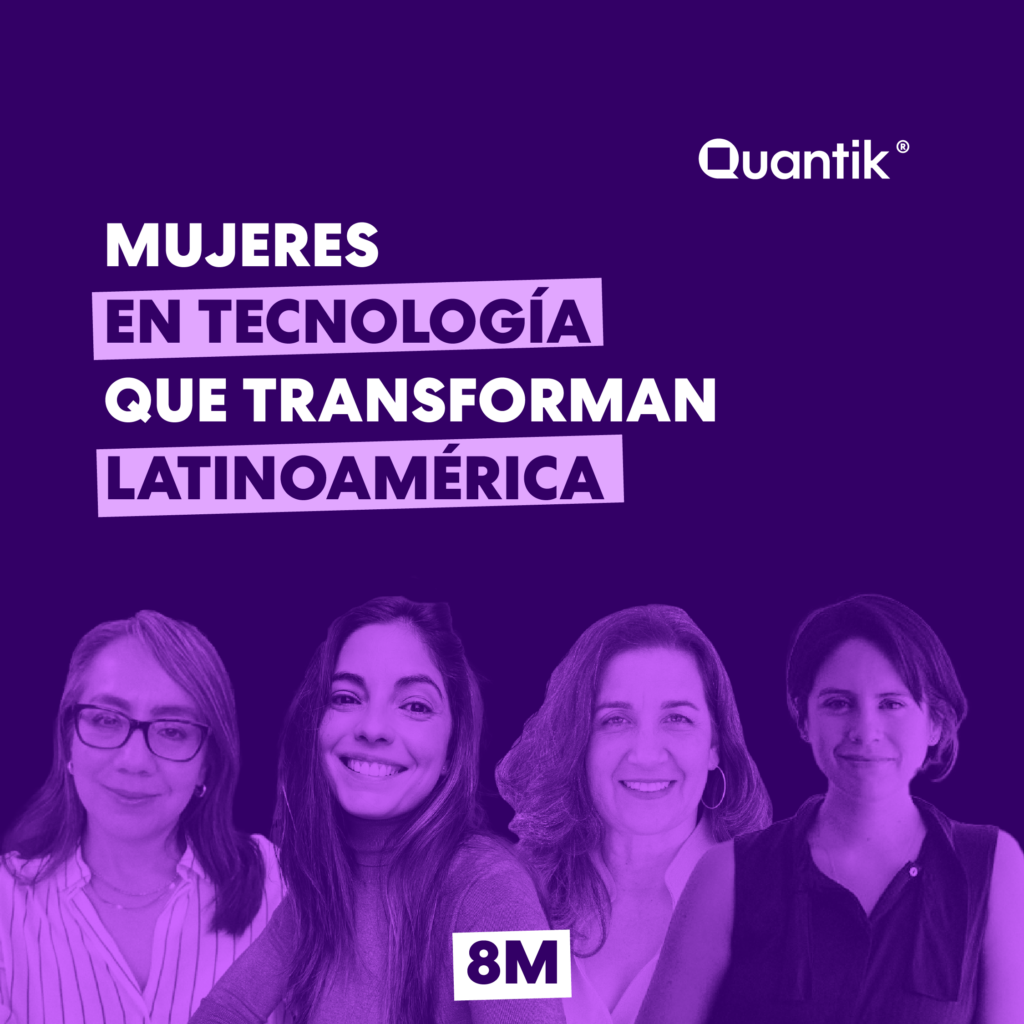
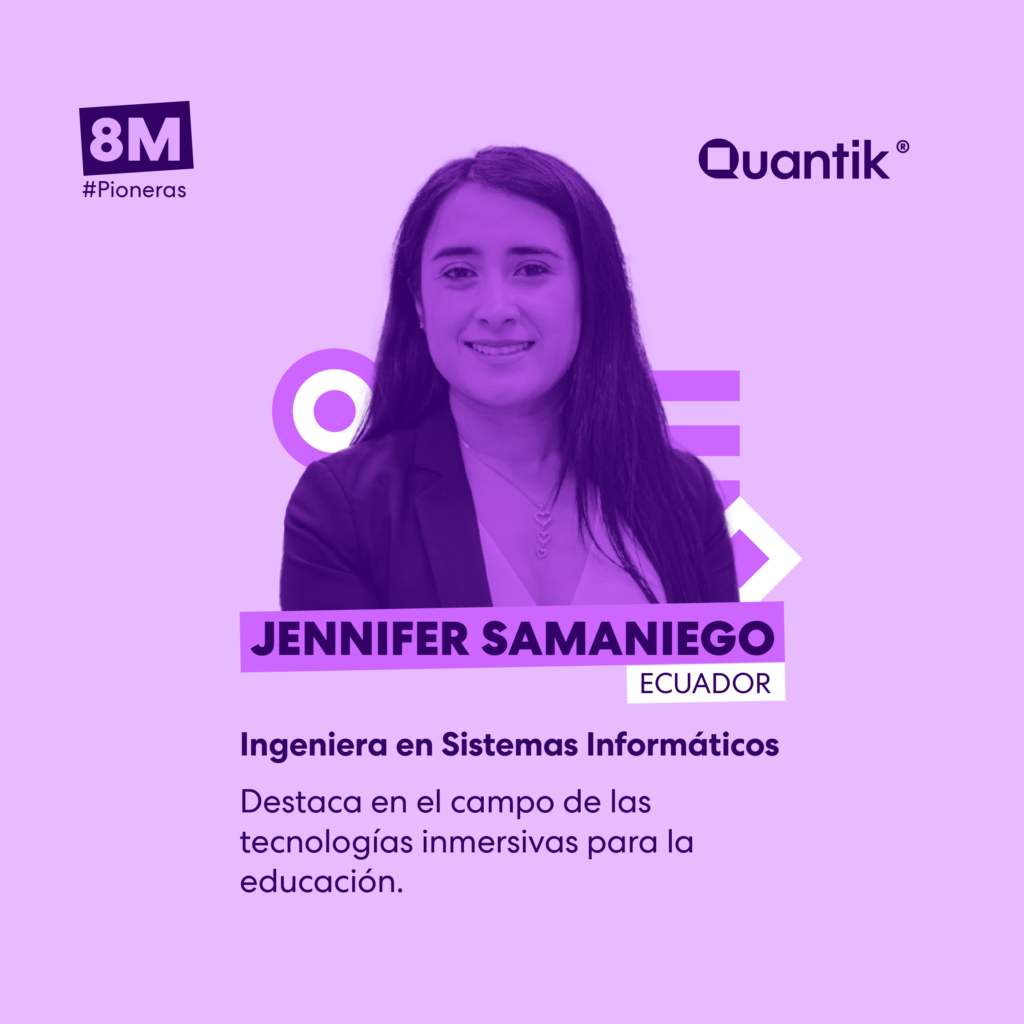
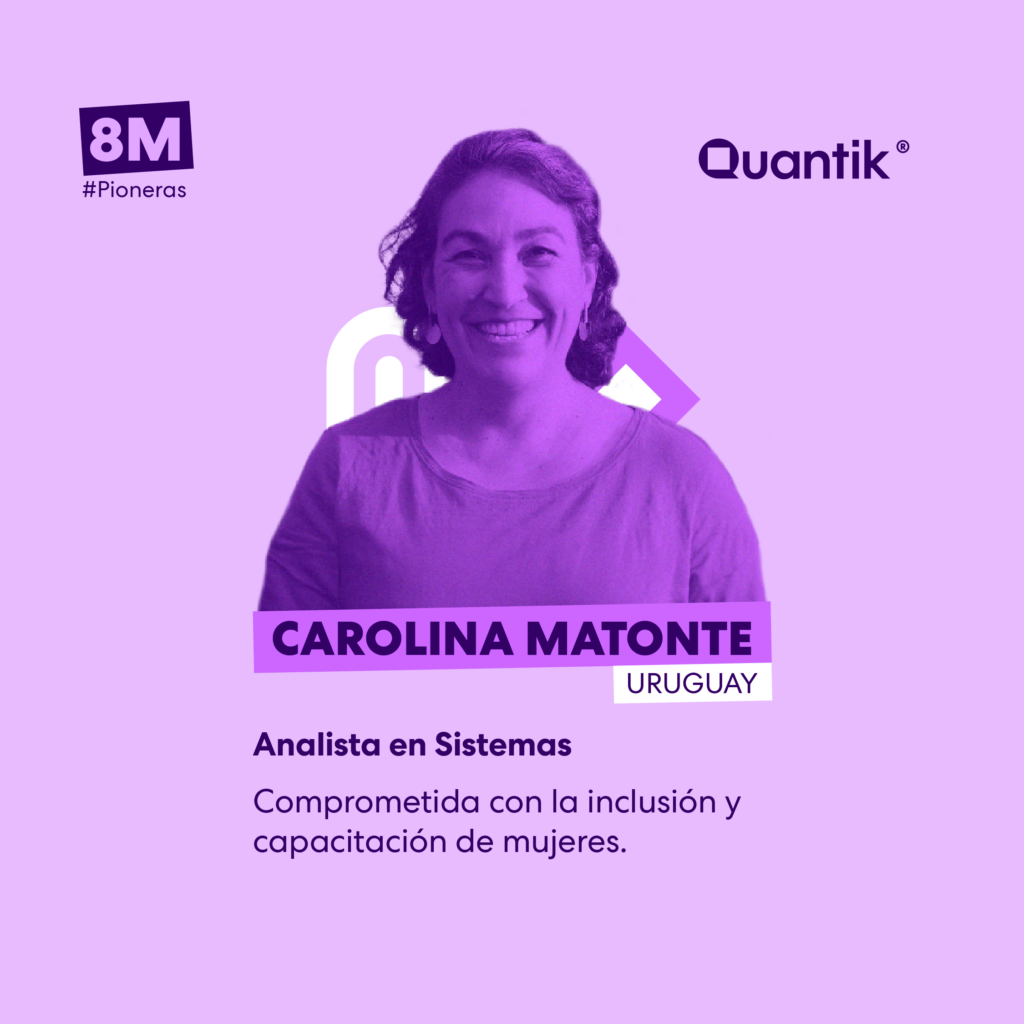
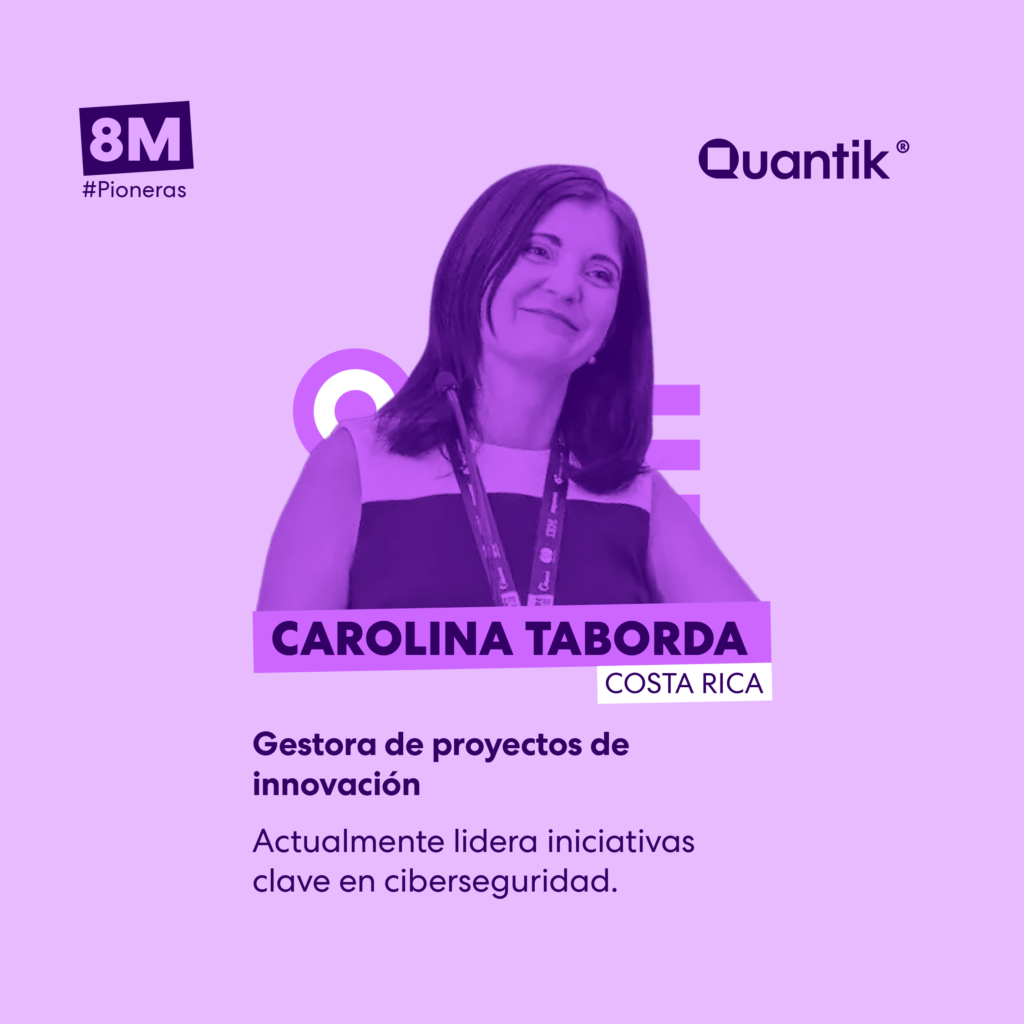
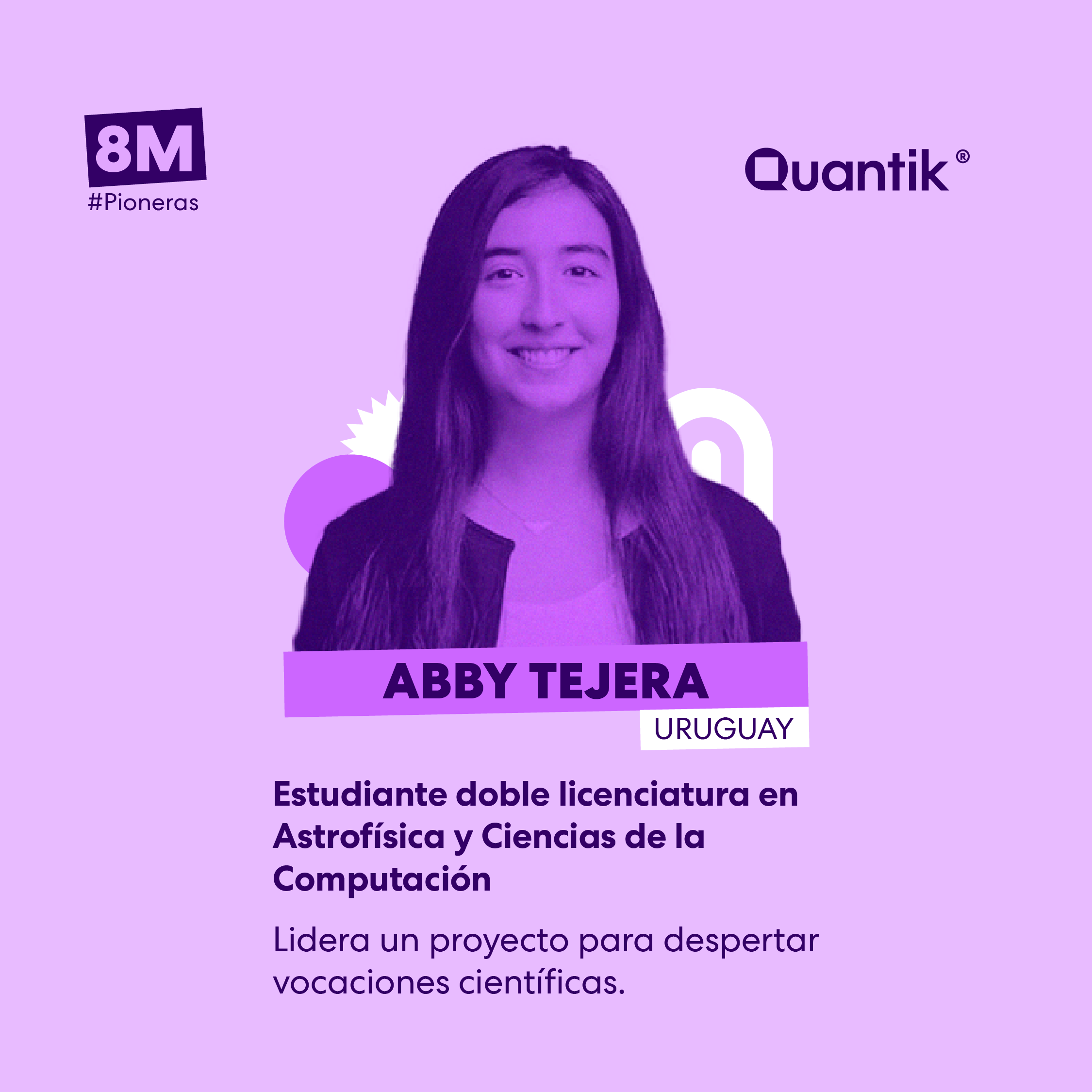
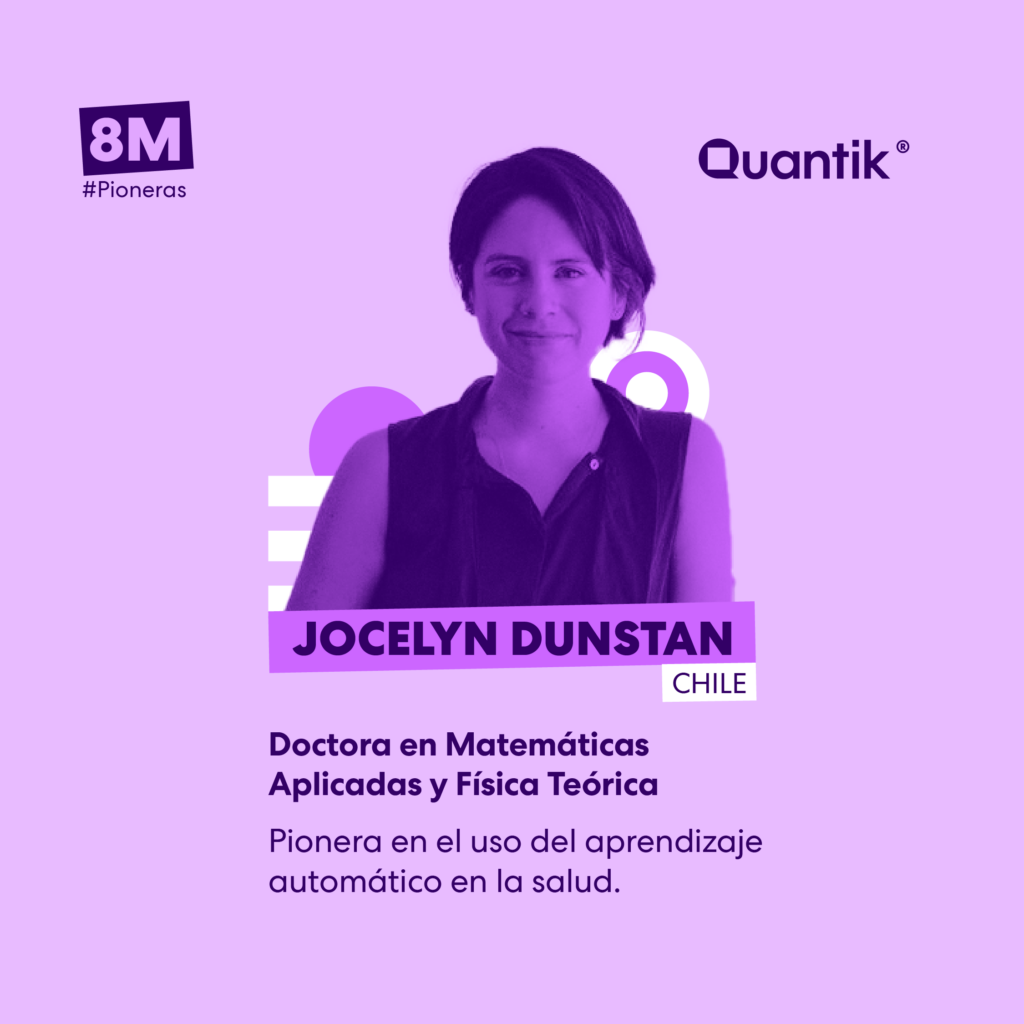
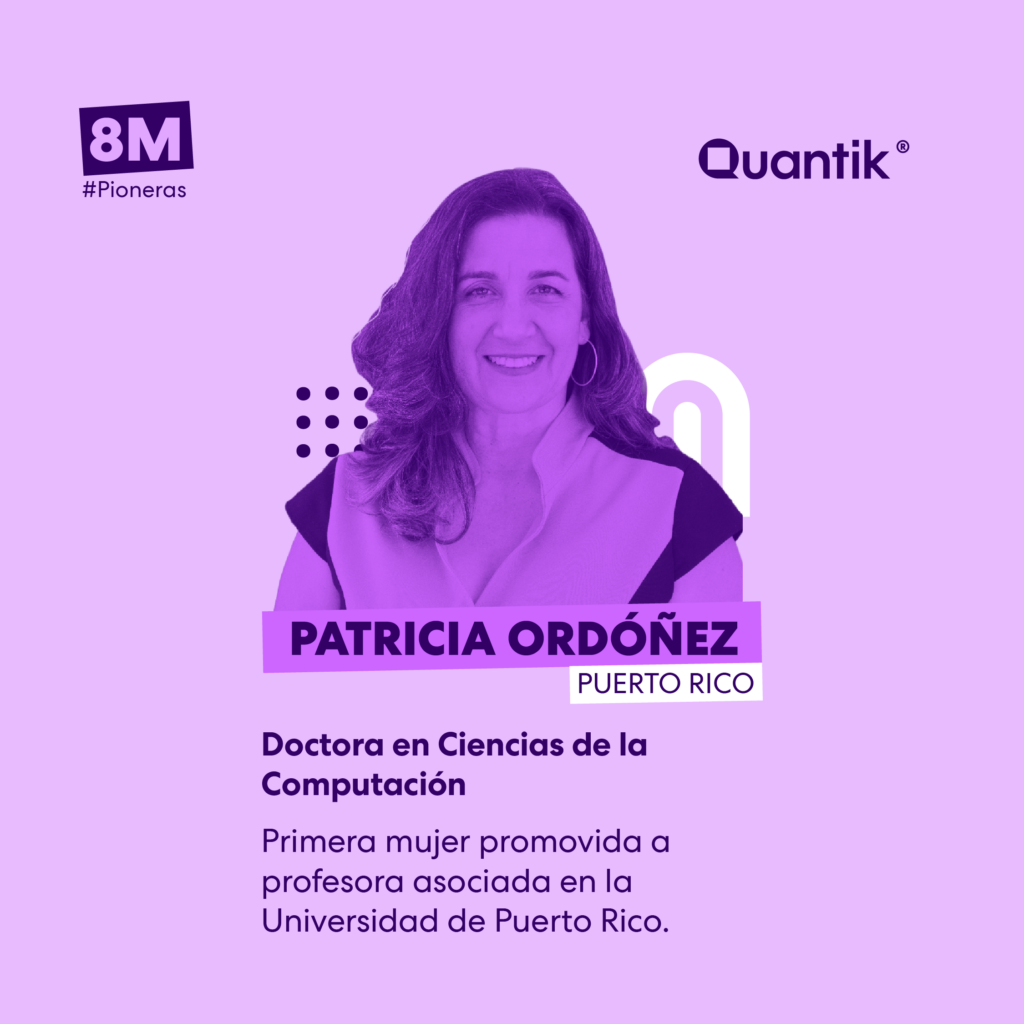
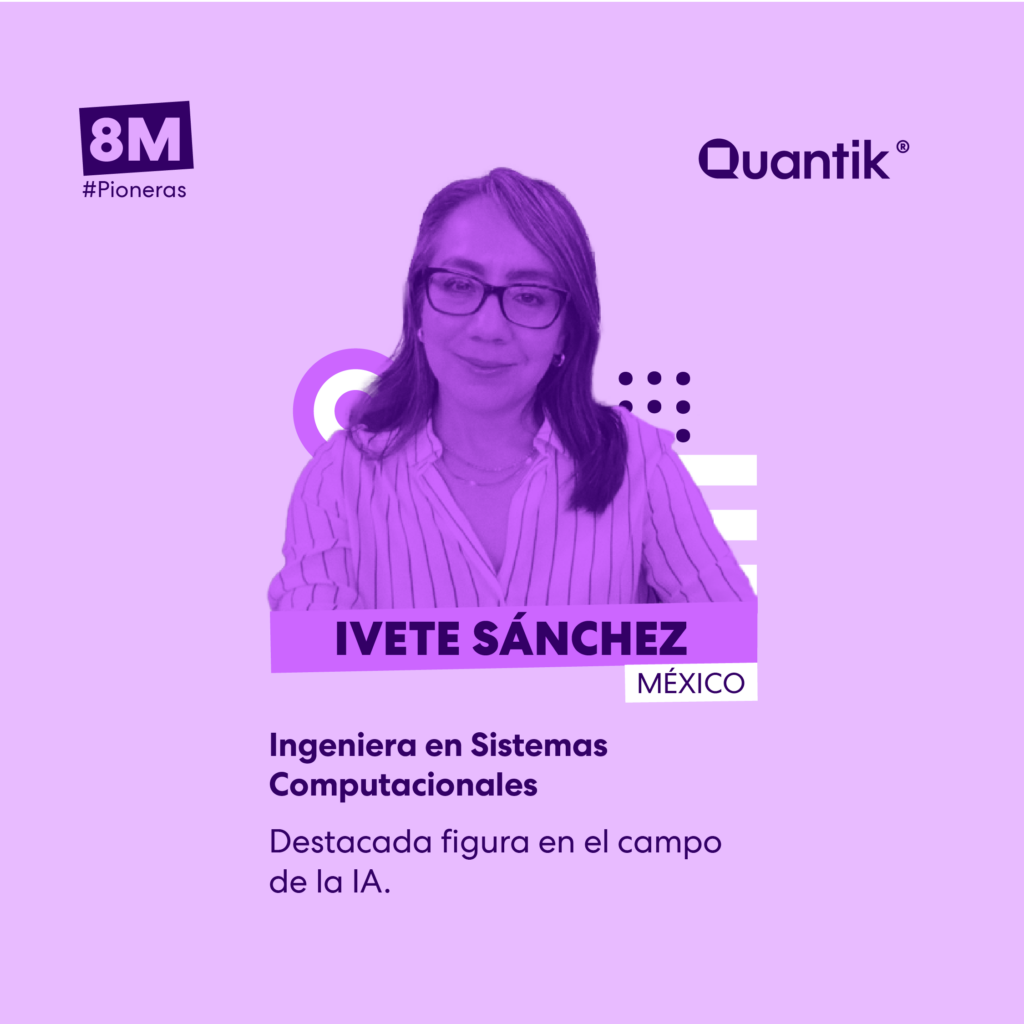
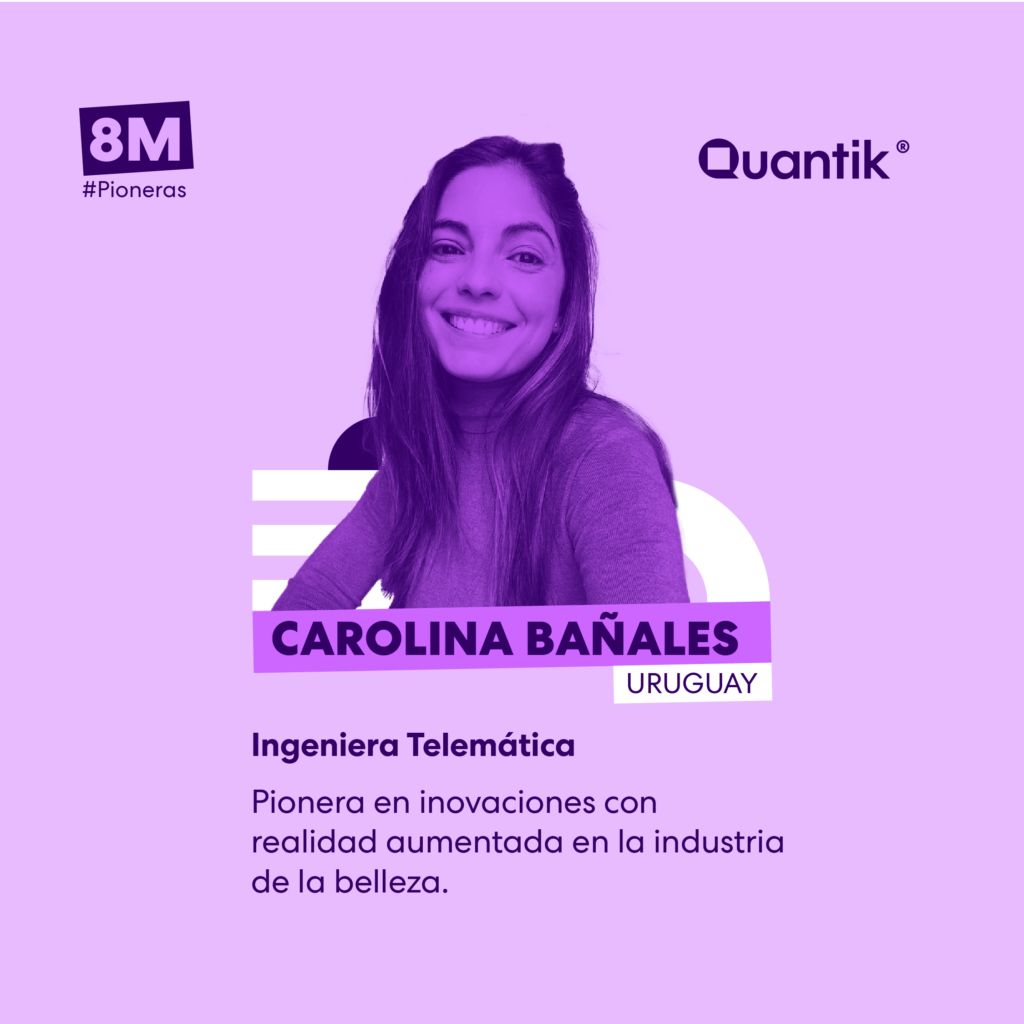
The #Pioneers initiative is part of our efforts to make women in STEM areas more visible and promote female role models in childhood to break stereotypes. Get to know the stories of the women protagonists of the 2022 and 2023 editions.
